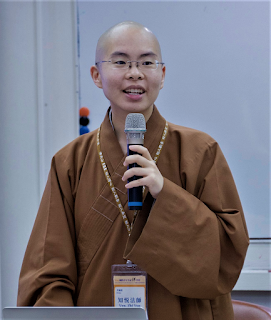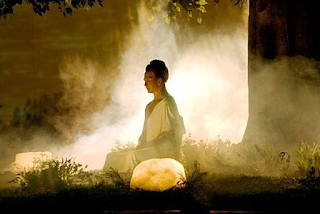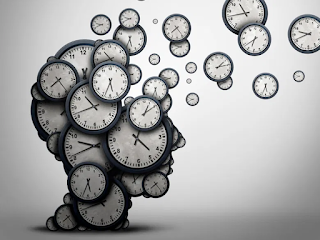
Speaker: Venerable Zhi Yue
Fo Guang Shan Institute of Humanistic Buddhism
I. Introduction
Auspicious greetings to our friends around the world. This is Zhi Yue from Fo Guang Shan Monastery in Taiwan. Thank you for joining this online session of Fo Guang Shan English Dharma Services. We hope that this talk finds you well and in good health.
In the past few days, the number of coronavirus cases has skyrocketed. We’ve seen the government and health authorities order people to “shelter in place.” All across the world, public spaces—such as schools, museums, and restaurants—have been shut down to protect communities. People are now confined to their homes. When such changes jolt us out of our daily routines and into self-isolation, our natural reaction is to worry and panic.
II. “Shelter in Place”: From Physical Abode to Dharma Abode
“Shelter in Place” means to take shelter where you are currently located. It means for people to limit interactions in public spaces and to stay home. This way, the chances of spreading and catching the coronavirus decrease.
However, while our homes can offer us physical safety, it doesn’t shelter us from the uncertainty, resentment, or fear in our hearts. Though we may be physically in good health, the chaos from the news and social media still finds ways to sneak into our lives. Our natural tendency is to place the blame of the pandemic onto others. But ask ourselves, does blaming others really resolve the situation? No, all it does is to feed inner turmoil. From this, we can see that although we are physically isolated and physically sheltered, we are still very much openly exposed to the poisons of greed, hatred, and ignorance.
How do we seek shelter from these psychological afflictions? Where should we abide for our spiritual well-being? The Buddha teaches us to take the Dharma as our spiritual home. Put simply, the term “Dharma abode” likens the Buddha’s teachings to a home where we live. It is our spiritual refuge, the shelter for our hearts.
So, where is the Dharma? Well, to name a few, cause and effect are Dharma. Compassion, loving-kindness, joy, and equanimity are Dharma. Benefiting others and the world is Dharma. Tolerance and selflessness are Dharma. Doing good deeds, speaking good words, and thinking good thoughts are all Dharma. By continuously practicing the Dharma, we can create a haven for ourselves and others that is beyond physical form.
In other words, spiritual refuge is not found by escaping somewhere else, but through the actualization of the Dharma in our daily lives—in this very place, in this very moment. We could say that the Dharma abode is our true spiritual “shelter in place.”
III. From Physical Quarantine to Spiritual Retreat

Instead of locking ourselves out of fear and worry, let us transform our experience “sheltering in place” into a more positive one. In a pandemic, self-isolation is called “quarantine.” But in Buddhism, self-isolation is considered to be a “retreat”. Since ancient times, many Buddhist sages have purposely isolated themselves from society to go into deep contemplation.
Even in other religious traditions, self-isolation is viewed as a vehicle to greater awareness and a necessary part of spiritual life. Now, we don’t need to practice austerities during the pandemic, but what we can do is to learn how to transform our “quarantine” into a fruitful “retreat” that can benefit our spiritual growth.
There is a poem by Chan Master Hanshan Deqing from the Ming Dynasty. He writes,
“To retreat physically with a wandering mind is wasted effort,
Being reclused for a thousand years would be futile.”
In a quarantine, physical movement is restricted to a certain space to prevent the spread of disease. But in a retreat, we are limited to a certain space in order to prevent ourselves from wandering off—both physically and mentally. By focusing the mind, one’s energy is directed inwards for reflection, prayer, and meditation. Instead of going outwards, one goes inwards for introspection. In this way, we can begin to develop ourselves and discover the endless Dharma treasures within us.

In the book called Mind of a Practitioner, Venerable Master Hsing Yun offers the following four ways of self-development:
1. Look for flavor in simplicity.
Indeed, life at home may seem quite plain. However, we can still look for flavor in simplicity—particularly in how we live and how we relate to everything around us. The coronavirus serves as a reminder to us to reflect on the important points in life. It reminds us to be content with what we have and to cherish things we normally take for granted.
For example, before the pandemic, some grocery delivery services could deliver within an hour, but now we are considered lucky if they can even deliver once a week. The coronavirus has also given us insight on just how interconnected we are, and the various causes and conditions around us. Instead of indulging in many dining options, or eating as a means of distraction, we can remember that the main purpose of food is to nourish the body. We can reflect on the origins of the food and the work that has gone into producing it.
Likewise, as we see toilet paper fly off the shelves in the markets, may we realize that there are those less fortunate than ourselves in the world. They may not even have access to the same sanitization resources we do.
Actions as simple as how much food we eat and how much toilet paper we use can become practices of the Dharma. By eating the food and using the things we truly need, we curb our greed and practice compassion. We acknowledge all the efforts that others have put in for our benefit. It is also a way for us to share with other people by allowing them the same opportunity to also utilize the same resources.

So, we should abide in cherishing and building affinities with all living beings. With new-found appreciation, even a simple meal can taste delicious. Only by cherishing what we have, can we truly enjoy the taste of simplicity.
2. Look for contentment in labor.
Once upon a time, someone asked a Chan master to teach him how to manage time. The Chan master replied, “When time passes, it never returns; every second is thus precious.” In a retreat, self-discipline and time management is key. Creating and following a daily schedule is the first step to freedom and finding our true potential.
As we look for ways to pass time in home-quarantine, choose meaningful activities that bring joy, interest, or a sense of achievement. Allocate time for working at home, for picking up a new hobby, taking an online course, or learning new skills. Also try incorporating meditation, sutra calligraphy, or chanting the Buddha’s name into your daily routine. In the words of Venerable Master Hsing Yun, “Keeping busy is the best nourishment.”

Additionally, we can set times for waking up, taking our meals, and going to bed. Sleep allows our body and mind to settle down, so that we can recharge and be energized for the next day. However, if we are lazy and indulge in sleeping, it is easy to become muddled without awareness.
Buddhist practice emphasizes upholding a regular daily schedule that includes chanting and taking meals. It also maintains a proper balance between work and rest. By providing ourselves with structure, we allow our body and mind to adjust to a set rhythm. Well-rested and properly nourished, the body knows what to expect and experiences less stress, causing the mind to also be more settled and at ease. Having a routine helps us conserve energy by reducing the time and effort we normally waste idling away or coaxing ourselves out of procrastination.
Managing time is also the start of managing our minds. We should understand the fleeting essence of time and learn to abide in the present. We should be mindful of impermanence and diligently take each moment as part of our Dharma practice. As long as we treasure every second of our lives and seize every moment, we will be able to realize and experience the truth in the saying “living eternity in a moment.”
3. Look for freedom in restriction.
Many people find routine to be quite plain and boring. Instead, they seek to have various choices and freedom in living impulsively. Most people believe that having more choices, the more freedom we have. We live in the illusion that when there are more options, there are fewer restrictions.
However, this is not always the case. The more options we have, the more energy it takes to make decisions. We ask ourselves, “Which outfit should I wear? What should I eat? Which movie should I watch? Which shampoo should I buy?” When our energy and attention are spent trying to make these decisions, we are left with less energy and attention to truly live our lives.
Ironically, choice can also be isolating. It traps us within our own illusory thinking instead of truly experiencing what life has to offer. Choice allows us the possibility of following our preferences, but it also is an extension of our own behavioral and mental patterns.
Take the internet for example. It has rapidly expanded the amount of information we have access to. It gives us more choice in what to read and watch. The way we browse the internet is tracked to give us information based on our online behavior; everything we see online, such as the news and videos, can be based on our preferences. We can select information that is relevant and interesting to us. But, on the other hand, it can also lead us to selective exposure, leading us to an “echo chamber.”
Our own beliefs are amplified by repetition inside a closed system that we have created by choice. We merely seek information that reinforces our preexisting views, seeing the world through a so-called “tunnel vision.” This is also one of the reasons for increased social and political polarization and extremism in the world.
When it comes to spiritual practice, restrictions can actually increase our awareness. For example, in meditation, we sit in one position and focus the mind on one object. There is no other choice, but yet it forces us to acknowledge what we have normally ignored. With no other choice, we are left to face ourselves. We are pushed to learn how to relate to the complexities of life instead of living in our own bubbles.
When we see things with clarity, we are free from our mental shackles. We are free to experience in its entirety instead of selectively. In this way, the coronavirus can be the catalyst for opening our eyes and great spiritual freedom even in the confines of our homes.
4. Look for true love in friendship.
Confucius once said, “To be in the company of virtuous people is like being a room full of flowers; eventually, we grow unaware of their fragrances because we have become a part of them. To be in the company of wicked people is like being in a salted fish shop; eventually, we grow unaware of their stench because we have become a part of them.” This quote by Confucius emphasizes the importance of the kind of friendships we have as they play key roles in our spiritual development.
The Buddha teaches us that there are four kinds of friends: friends who are like flowers, friends who are like scales, friends who are like mountains, and friends who are like the earth. The first type of friend—friends who are like flowers—only cherish a person when they want something from them. When no longer of use to them, they will desert others. The second type of friend—friends who are like scales—are weighing others constantly. They flatter people in good times, but look down upon others in times of trouble. So, the first two types of friends—friends who are like flowers and scales—are not the right friends. Therefore, friends should be like the mountains and earth, as they will always be there to support one another.
In this way, we can look for true love in friendship. What is true love? It is a love that is without selfishness. It is unconditional and selfless. It is loving-kindness, compassion, joy, and equanimity. Therefore, especially in times of crisis, we should reach out to those who exhibit the qualities of selflessness and virtue. We should reach out to those who help nurture and develop us into better people.
At the same time, we should reach out to others with compassion and friendship. We can show our support for others during this difficult time. We can bring hope and positivity to other people. We can illuminate the darkness and shed our light upon one another. May we share our Dharma abode with others, and guide them as spiritual friends.
IV. Conclusion
To recap, let us take this moment of isolation as a spiritual awakening. Let us transform the physical abode into one of Dharma. Let us look for flavor in simplicity, contentment in labor, freedom in restriction, and true love in friendship.
Let us conclude this Dharma talk by joining our palms, and dedicating the merits from this session to our family, our friends, our society, and to all beings.
Last but not least, thank you for joining us in this cultivation session. If you find this Dharma service helpful to your practice, please subscribe to the FGS English Dharma Services Youtube Channel and share it with your friends.
See you next week.
And may Buddha bless you and your family.
Omituofo.
